
Do you try more to be original or to deliver to readers what they want?
I write the stories I want to write. I don’t like the idea of writing in a particular genre or for a particular audience because those genres are popular or a certain audience reads more. Sure, I like to earn money from my writing (and would LOVE to earn way more than I do now), but writing is about more than money. It’s a craft, and it has to come from the heart.
If you could tell your younger writing self anything, what would it be?
If you want to succeed, you have to be behind yourself 100%. I think most writers doubt themselves and their writing. Of course, we do! We’re a sensitive lot – us writers. But you need to go for it if you want to succeed and not hold back because you’re insecure.
What’s your favorite under-appreciated novel?
 This is a difficult question. What to choose? I totally cheated and went to Goodreads to see which novels I’ve given five stars but have low overall ratings. I was shocked to see how many people didn’t enjoy The Lacuna from Barbara Kingsolver. I shouldn’t be surprised. My book club – which I forced to read the book – didn’t like it either. I loved it. The vibrancy of Mexico, intermixed with history, and an interesting story – all written by an excellent author. What’s not to love?
This is a difficult question. What to choose? I totally cheated and went to Goodreads to see which novels I’ve given five stars but have low overall ratings. I was shocked to see how many people didn’t enjoy The Lacuna from Barbara Kingsolver. I shouldn’t be surprised. My book club – which I forced to read the book – didn’t like it either. I loved it. The vibrancy of Mexico, intermixed with history, and an interesting story – all written by an excellent author. What’s not to love?
Do you read your book reviews? How do you deal with bad or good ones?
Oh gosh, I can’t believe there are authors who don’t read the reviews of their books. How do they stand it? I’m way too curious. Good ones are cause for celebration. Bad reviews? If it’s a critical review, I try to learn from it. The one thing I don’t do is respond to the reviewer. That path leads to destruction (and tequila shots, but that’s another story).
Do you hide any secrets in your books that only a few people will find?
Not really. There are little clues here and there, but I want readers to find them. I want them to be mislead or confused about whodunit.
Do you Google yourself?
I’m starting to understand why curiosity killed the cat. I’m too curious not to google myself.
What is your favorite childhood book?
 I don’t really know if this counts as a childhood book, but I was absolutely addicted to Nancy Drew Mysteries as a child. I loved the idea of this punky teenager running off solving mysteries with no fear (but always wearing gloves!). Man, I wish I could be her.
I don’t really know if this counts as a childhood book, but I was absolutely addicted to Nancy Drew Mysteries as a child. I loved the idea of this punky teenager running off solving mysteries with no fear (but always wearing gloves!). Man, I wish I could be her.
If you had to do something differently as a child or teenager to become a better writer as an adult, what would you do?
I probably should have paid more attention in English class. I had to play catch up with English grammar in college. I could have read more English literature as well. I don’t think my obsession with dead Russian authors has helped much with my writing.
How long on average does it take you to write a book?
My murder/mysteries and romantic comedies usually take about four months to write. My historical novels take a few months longer. Although both of those estimations change based on how busy the rest of my life is. How dare life get in the way of writing? It dares. Trust me. It does.
About D.E. Haggerty:
I grew up reading everything I could get my grubby hands on, from my mom’s Harlequin romances, to Nancy Drew, to Little Women. When I wasn’t flipping pages in a library book, I was penning horrendous poems, writing songs no one should ever sing, or drafting stories which have thankfully been destroyed. College and a stint in the U.S. Army came along, robbing me of free time to write and read, although on the odd occasion I did manage to sneak a book into my rucksack between rolled up socks, MRIs, t-shirts, and cold weather gear. After surviving the army experience, I went back to school and got my law degree. I jumped ship and joined the hubby in the Netherlands before the graduation ceremony could even begin. A few years into my legal career, I was exhausted, fed up, and just plain done. I quit my job and sat down to write a manuscript, which I promptly hid in the attic after returning to the law. But practicing law really wasn’t my thing, so I quit (again!) and went off to Germany to start a B&B. Turns out running a B&B wasn’t my thing either. I polished off that manuscript languishing in the attic before following the husband to Istanbul where I decided to give the whole writer-thing a go. But ten years was too many to stay away from my adopted home. I packed up again and moved to The Hague where I’m currently working on my next book. I hope I’ll always be working on my next book.
Finders, Not Keepers is my thirteenth novel.
Connect with D.E. Haggerty:
Website: http://dehaggerty.wordpress.com
Blog: https://dehaggerty.wordpress.com/category/mymusings/
Facebook: https://www.facebook.com/dehaggerty
Twitter: https://twitter.com/dehaggerty
Instagram: https://www.instagram.com/dehaggerty/
Goodreads: https://www.goodreads.com/author/show/7210211.D_E_Haggerty
Amazon author page: http://www.amazon.com/D.E.-Haggerty/e/B00ECQBURU/
Newsletter signup: http://eepurl.com/bbmdj9
Google+: https://plus.google.com/u/0/+DEHaggerty/posts
Pinterest: http://www.pinterest.com/denahaggerty/
Bookbub author page: https://www.bookbub.com/profile/d-e-haggerty
Email: dena@dehaggerty.com
D.E. Haggerty’s Book:
 Blurb:
Blurb:
What do you do with a diamond no one wants? You can’t keep it. Or can you?
While cleaning her ex-husband’s effects out of the attic, Terri finds an exquisite diamond pendant necklace. She’s determined to return the necklace to its proper owner, but the owner was brutally killed, a murder which remains unsolved, and her heirs want nothing to do with the diamond. Terri embarks upon a journey researching charities to which she can donate the diamond. When her research becomes dangerous, Terri contemplates solving the murder herself. Her best friend, Melanie, jumps feet first into investigating the murder, but her neighbor, Ryder, doesn’t want Terri exposed to any danger. Ryder, to Terri’s surprise, also wants to be more than neighbors with Terri. Luckily, he’s prepared to take any measure necessary to keep her safe because someone is determined to stop her inquiries.
Join Terri on her quest to find a home for the diamond, which may result in the unveiling of a murderer – if she survives long enough.
Buy links:
Amazon: https://www.amazon.com/Finders-Keepers-Reluctant-Detectives-Book-ebook/dp/B07DSWRXMM/
Smashwords: https://www.smashwords.com/books/view/842204
Barnes and Noble: https://www.barnesandnoble.com/w/finders-not-keepers-de-haggerty/1128930568?
Kobo: https://www.kobo.com/us/en/ebook/finders-not-keepers
Goodreads: https://www.goodreads.com/book/show/40545654-finders-not-keepers
iTunes: https://itunes.apple.com/us/book/finders-not-keepers/id1407230191?mt=11
Excerpt:
“How are we going to solve the murder if we don’t even know where it happened?”
“We are not solving the murder! How many times do I have to explain myself? I’m only trying to honor Jessica’s last wishes by finding somewhere to donate the necklace in her memory.”
“We are totally solving this murder.”
“Did you not read the part where she was shot to death! And the police have no fricking idea what happened?”
Melanie shrugged as if she knew people who were shot to death all the time. “We’ll be fine.”
“We? We are not doing anything. I’m the one who is doing this. We are not doing anything.”
“Fine. Fine. So, Ms. Patterson, what are you going to do next, hmm?” She raised an eyebrow, crossed her arms over her chest, and leaned back in her chair.
“I’m not sure.” Terri tapped her fingers on the table. There was a long pause before she suddenly sat up straight. “Where did the obit say donations were to be sent?”
Melissa pulled the obit up on her tablet. “Westside Soup Kitchen.”
“That’s it!” She snapped her fingers. “I’ve volunteered at that soup kitchen several times. I’ll just go check it out. See if they are a good candidate for receiving the necklace.”
“You volunteered at the same soup kitchen as Jessica? Maybe you met her and don’t remember?”
“No.” Terri shook her head. “I saw a picture of her at the Collins’ house. There’s no way I would have forgotten meeting her.”
“Maybe some of the other volunteers or even the homeless people will remember Jessica. You could ask them about her.”
“Stop trying to solve the murder!”
Melanie readily agreed she wouldn’t get involved in investigating the murder, but Terri knew better than to believe her.






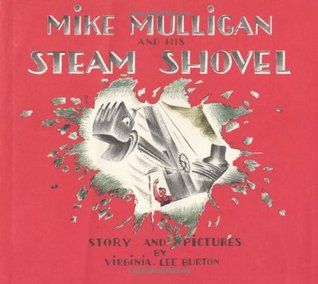 Children’s books have a special place in my heart, even today while I reach 30 years old. I love Dr. Seuss immensely. The Hobbit is great. I love the Jungle Books. My favorite anything ever has to be Calvin and Hobbes. But the one kiddie book that sticks with me is Mike Mulligan and His Steam Shovel, which I reference in Brothers of Blood.
Children’s books have a special place in my heart, even today while I reach 30 years old. I love Dr. Seuss immensely. The Hobbit is great. I love the Jungle Books. My favorite anything ever has to be Calvin and Hobbes. But the one kiddie book that sticks with me is Mike Mulligan and His Steam Shovel, which I reference in Brothers of Blood. Brothers of Blood follows Belle Whynecrow in her final year of highschool. Her best friends Josue, Xavier, and Jesus the hobo welcome the new kid, Chris, with welcome arms. The only catch? To quell their boredom, Belle asks all to create a kill list that they’ll trade, marking off the names as they complete their goal before senior year ends. While struggling to pass their classes with flying colors, this band of merry murderers seems to be on a delightfully bloody roll until Belle’s long imprisoned older brother, Beau, arrives at her doorstep. Now a devout man of God, the brotherhood schemes for his return to his original, and highly exaggerated, bloodlust. That is, if Chris’s jelousy doesn’t destroy Belle’s ranking in the gang first. Not everyone will survive, but those who do will certainly have a year to remember because those that kill together live forever.
Brothers of Blood follows Belle Whynecrow in her final year of highschool. Her best friends Josue, Xavier, and Jesus the hobo welcome the new kid, Chris, with welcome arms. The only catch? To quell their boredom, Belle asks all to create a kill list that they’ll trade, marking off the names as they complete their goal before senior year ends. While struggling to pass their classes with flying colors, this band of merry murderers seems to be on a delightfully bloody roll until Belle’s long imprisoned older brother, Beau, arrives at her doorstep. Now a devout man of God, the brotherhood schemes for his return to his original, and highly exaggerated, bloodlust. That is, if Chris’s jelousy doesn’t destroy Belle’s ranking in the gang first. Not everyone will survive, but those who do will certainly have a year to remember because those that kill together live forever.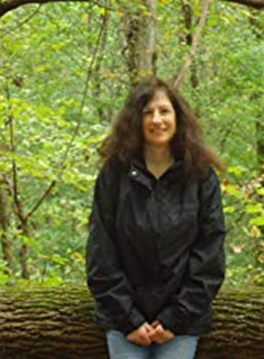 Do you try more to be original or to deliver to readers what they want?
Do you try more to be original or to deliver to readers what they want?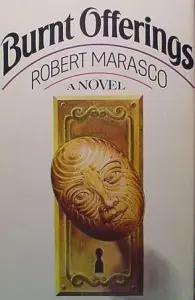 Burnt Offerings by Robert Marasco
Burnt Offerings by Robert Marasco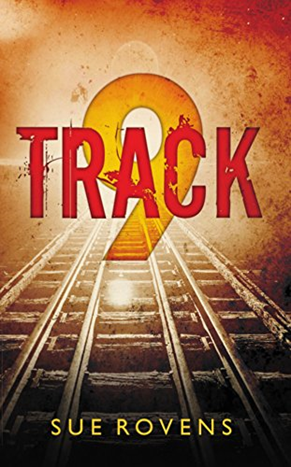
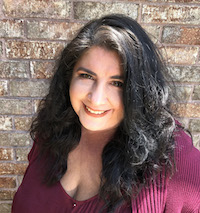 Do you try more to be original or to deliver to readers what they want?
Do you try more to be original or to deliver to readers what they want? Anything with the word “favorite” in it makes me nervous. How to pick one of anything when there are so many choices out there? My list is long and varied, mostly with indie authors and authors with smaller presses, and you can find my reviews of many of them on my blog. (I don’t want to state any by name because I’m sure I’ll forget some and I don’t want to hurt people because I excluded them.)
Anything with the word “favorite” in it makes me nervous. How to pick one of anything when there are so many choices out there? My list is long and varied, mostly with indie authors and authors with smaller presses, and you can find my reviews of many of them on my blog. (I don’t want to state any by name because I’m sure I’ll forget some and I don’t want to hurt people because I excluded them.)
















 The Meaning of Night: A confession by Michael Cox. It is absolutely superb
The Meaning of Night: A confession by Michael Cox. It is absolutely superb The Silver Sword by Ian Serraillier
The Silver Sword by Ian Serraillier





 Smashwords:
Smashwords: 
 The Shipping News by E. Annie Proulx. I just love this book and reread it from time to time to remind myself what great writing sounds like. Proulx won a Pulitzer Prize for this novel in 1994, but I don’t think many people appreciate the lure of this book.
The Shipping News by E. Annie Proulx. I just love this book and reread it from time to time to remind myself what great writing sounds like. Proulx won a Pulitzer Prize for this novel in 1994, but I don’t think many people appreciate the lure of this book. The Golden Pine Cone by Catherine Anthony Clark. I grew up in rural Ontario and our elementary school library was a broom closet. However, one day I found this book, and it blew me away. Years later, when I bought it online and reread it, I just laughed. I knew I’d loved it, but didn’t remember why. The book is set in British Columbia, where I now live. It’s mythic fiction that features a quest. It involves Indigenous spirits, adventure, and secret magical landscapes. As Wordsworth once wrote: “the child is father of the man.”
The Golden Pine Cone by Catherine Anthony Clark. I grew up in rural Ontario and our elementary school library was a broom closet. However, one day I found this book, and it blew me away. Years later, when I bought it online and reread it, I just laughed. I knew I’d loved it, but didn’t remember why. The book is set in British Columbia, where I now live. It’s mythic fiction that features a quest. It involves Indigenous spirits, adventure, and secret magical landscapes. As Wordsworth once wrote: “the child is father of the man.”


 The Blacker the Berry by Wallace Thurman
The Blacker the Berry by Wallace Thurman




 “The Iron King” by Julie Kagawa. I think the entire series should be a lot more popular than it is: intrigue, Faeries, romance, excellent worldbuilding and characterisation – what’s not to love?
“The Iron King” by Julie Kagawa. I think the entire series should be a lot more popular than it is: intrigue, Faeries, romance, excellent worldbuilding and characterisation – what’s not to love? “Klein Grootvoël, Die Getoorde Boeing” by Nico Venter. (It loosely translates from Afrikaans to: tiny big bird, the spelled Boeing.) I won it in a debating competition in primary school – it has various ghosts, including an African medicine man matching wits with an Indian medicine man while two boys take part in the adventures by travelling in a spelled toy airplane every full moon. It came out in 1997 – and taking into account the tensions in South Africa at that time regarding race and religion, it’s probably understandable that I can’t find it on the internet even with an ISBN number (magic, being friends with someone outside your culture and race, and a few other themes in the book weren’t popular back then).
“Klein Grootvoël, Die Getoorde Boeing” by Nico Venter. (It loosely translates from Afrikaans to: tiny big bird, the spelled Boeing.) I won it in a debating competition in primary school – it has various ghosts, including an African medicine man matching wits with an Indian medicine man while two boys take part in the adventures by travelling in a spelled toy airplane every full moon. It came out in 1997 – and taking into account the tensions in South Africa at that time regarding race and religion, it’s probably understandable that I can’t find it on the internet even with an ISBN number (magic, being friends with someone outside your culture and race, and a few other themes in the book weren’t popular back then).
